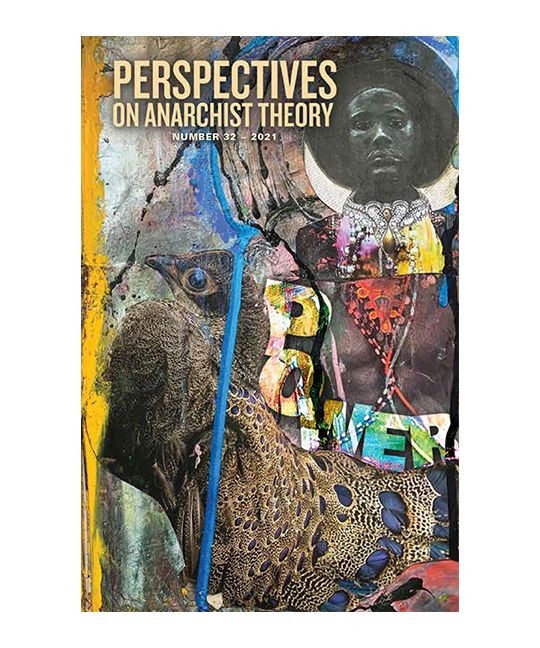Bamn *1 A4
£1.50
Bamn an unofficial mag of Plan C.
C below!
In stock
Description
Published on Sep 8, 2014 Bamn! A fist strikes a table. A point emphasised. Bamn. An explosion of movement. Escape from inertia. Bamn. A magazine to focus attention. Its message: the situation is urgent; we must change the world by any means necessary. But urgency carries its own danger. The urge to act separates from thought. Yes, we must change the world by any means necessary. But what means are necessary in our current situation? To answer that question we need space to slow down. Else we mistake what’s needed for what’s simply familiar. Bamn is a provocation, a provocation to think.
Plan C is an organisation of people who are politically active in their workplaces and communities. We work together to support each other, amplify our struggles and think strategically.
We want to go beyond network-based organisation, without falling back on the model of a party. We are committed to ongoing experimentation to find the forms of collective activity needed to build a world beyond capitalism.
Plan C is also concerned with making plans – plans to survive and resist capitalism’s attack on our lives, and plans for collective self-organisation.
We currently have four active groups:
Leeds: leeds@weareplanc.org
London: london@weareplanc.org
Manchester: manchester@weareplanc.org
Thames Valley: thamesvalley@weareplanc.org
Where did Plan C come from?
Good question! Some of our members in Leeds were interviewed by the Interventionist Left – a radical organisation in Germany – in 2012 about Plan C’s origins and practice. Whilst not all of it is up to date and the politics of Plan C are always evolving it does provide a useful overview of the origins of our organisation. To find out more about our current activity you can see our events page, minutes from previous congresses or get in touch with us.
1. Plan C is quite an unusual name for a leftist organisation. What does it stand for?
The ‘C’ is deliberately ambiguous. The assumption tends to be that it stands for ‘Commons’ or ‘Communism’. Either of these is acceptable but people should feel free to interpret it differently if they wish. It also has the advantage of sounding a little like the title of a 1950s American ‘red scare’ thriller. More importantly, it’s a play on the flurry of discourse around ‘Plan A’ and ‘Plan B’ that emerged in the UK once the crisis had dug its heels in after 2007.
At the end of 2009, in a now-classic statement, the prime minister’s spokesperson told us “It is quite normal for government officials to be thinking about alternative scenarios [but] ministers haven’t asked for advice on ‘plan B’ because they are very clear that the plan we have is the right plan.” This plan, Plan A, is the plan that involves massive cuts to public spending, tripling of university fees, the ‘remodeling’ of labour and environmental policy, and tax breaks for the wealthy. In short, a neo-liberal plan focused on making Britain more ‘business-friendly’. Of course, just because ministers hadn’t gone looking for a plan B doesn’t mean no one else did.
There are numerous Plan B’s. Some better than others, but all of them hovering in the vicinity of some form or other of neokeynesianism. We don’t want to unhelpfully dismiss these plan Bs out of hand. We think it’s exciting so many people seem to be questioning the ‘present state of things’ and thinking about alternatives. However, it is crucially important to note the absence of the same social and material conditions that ushered in the golden age of social democracy in the past. In the light of this, the Plan B(s), being called for by everyone from pragmatic capitalist economists to left revolutionary parties, seem little more than pie in the sky. So, we suggest a new plan, Plan C (perhaps centred on commons). We have no desire to present this plan as a prognosis; one of the problems with plan B after all is its inability to meet the dynamism and flux of everyday life under capitalism. We need plans that can change, rapidly if need be. We do however, see this plan as being centred on how we organise our social reproduction. The focus on the question of organisation that this necessarily engenders is another aspect of the name. We want to go beyond the plans A and B of political organizing.
2. What was the motivation for founding Plan C? Have you been involved in political activism before? Why were you discontent with those contexts?
Plan C began, arguably, at a gathering of a couple of hundred people in Manchester. The name of this event was ‘Network X’. It was largely a one-man show and, were we to test it against the intentions of the organizers, was fairly disastrous. The gathering was called on the back of the volcanic arrival of a new generation of student activists whose occupation of the Conservative Party headquarters at Milbank had taken everybody by surprise. However, the organizers had mistakenly assumed that all that was required in order to incorporate this new generation into an already existing milieu of anti-capitalist and anarchist horizontalists was to introduce them to a tried and tested organizational model that had achieved results in the past. In this case, the model was Dissent! who had organized against the meeting of the G8 at Gleneagles in Scotland in 2005. Dissent! was a large, ‘open’, and informal network that operated on the basis of consensus. Anyone was able to join and decisions were carried at the level of regional and national meetings. The Climate Camp network, emerging partly out of post-Dissent discussions, also broadly took up this model of organizing.
When it came to the Network X meeting not only did a new network fail to materialize in Manchester but many of the weaknesses of this form of organizing were usefully exemplified in almost comedic form over the two days where we witnessed interminable arguments about consensus processes, cataclysmic eleventh hour derailments of discussions and decisions, and unofficial hierarchies taking accidental control and then abdicating on a wave of shame and self-criticism. It was like a whistle-stop tour of why we couldn’t simply transplant the structures of a previous cycle of struggle.
In the run up to this gathering there was a call-out for workshop proposals. Perhaps anticipating the problems that the gathering might encounter and building upon problematics articulated by the Free Association in the article ‘Re:Generations’, a group of comrades from Leeds ran a workshop entitled ‘What if there was a movement and we weren’t invited?’ The idea was to call into question the assumption that our forms of organising were somehow eternal, that we could bend the present to our structures rather than having to continually rethink and reimagine them. The economic crisis, and more directly the student movement, had ushered in for us a new era of struggle and it was clear that the left in its various existing incarnations was failing to find a place for itself The workshop itself was very productive and interesting. So much so that we reran it in Leeds where we had an even bigger turnout. At the same time, comrades from London, Manchester, and Nottingham who had been present at Network X ran similar discussions in their home cities. It was the organisers and participants of these discussions and workshops who met together over a weekend a month or so later at the first gathering of what would later be named Plan C.
Network X then, this anachronistic failure of an attempt to drag the old trebuchets of the alterglobalisationist movement over a transformed terrain, was in fact Plan C’s genesis. The question that emerged from this experience remains central to Plan C: How do we organise in way that engenders a dynamism capable not only of keeping up with the present and even of outrunning capital but also attain a coherence and solidity that enables us to weather the periods of low-intensity struggle?
Additional information
| Weight | 0.110000 kg |
|---|





